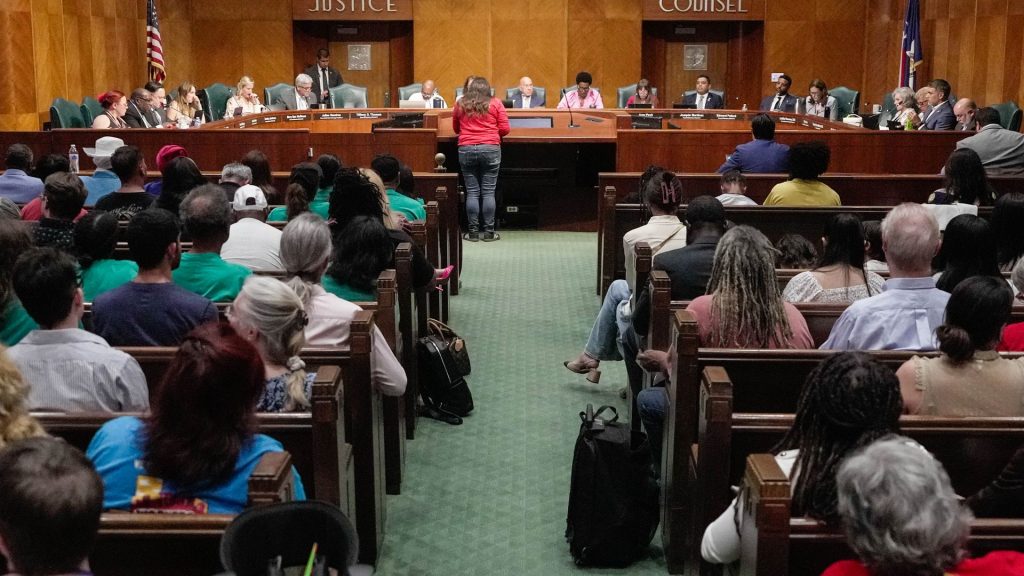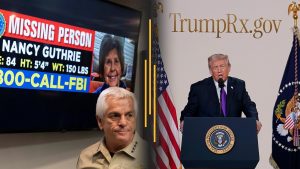Americans think local government is boring. Social media could fix that.

The axle-chomping pot hole growing deeper and wider in a busy intersection. The overflowing recycling bins still awaiting a truck to empty them, days or weeks behind schedule. Closed swimming pools. Battles over which library books to stock in the school around the corner.
These are local issues, regularly discussed and decided in open-door meetings held in city halls and school buildings across America.
But who’s paying attention?

Who’s attending city council meetings, anyway?
About one in 12 Americans reported they have attended a public meeting in the past year, according to the National Conference on Citizenship. In other words: 11 out of 12 Americans don’t attend those meetings.
That leaves a lot of people in the dark when it comes to understanding what’s happening in their own communities.
“I think we genuinely want people to actually be involved,” said Amanda King, chief communications and engagement officer for the city of Fort Collins, Colorado. “Because the decisions that council members are making, your local government is making, are the things that most closely touch your daily lives, right?”
Right, said Jeanette Senecal, chief of civic learning and impact at the League of Women Voters.
“If you’re talking about the city or county level, you’re talking about: When is that pothole going to be fixed? This intersection has a traffic accident every other day, and really needs a stop sign. My community park hasn’t had the trash picked up in a month,” Senecal told Straight Arrow News. “Those types of problems that are everyday problems that people face are addressed at the local level.”
And what’s more — the decision makers, from city council members to county leaders, are usually easy to find.
“They are charged with responding to community members, and they’re more accessible than the president or members of Congress because they’re in your community every single day,” Senecal said. “People have direct access to those elected officials and so you can go talk to them. You can walk into the building and see them. You can talk to their assistant.”
One place to find them? Public meetings. But those meetings aren’t exciting. Usually.
Why should people care what’s happening at city hall?
Emily Hynds, the woman behind the popular website Emily Takes Notes in Houston, attends city council meetings to distill the events into an intensely consumable, skimmable Instagram-ready cheat sheet. Her job, she told SAN, is to sit through meetings so Houstonians don’t have to.
In her words, those meetings are “a slog.” But they’re also like watching theater, which appeals to her as someone who works as a director.
“My job is to watch the big picture and track what’s going on and then translate that into what the audience is going to see,” said Hynds, who has amassed a significant following in Houston since she began posting her notes to social media in 2020.
“And it’s funny because not all theater is good, either. I feel like theater people who watch theater, we’re slogging through some stuff sometimes because we know that there are nuggets in there that are worth watching for us,” she told SAN. “They might not be worth watching for everyone, but for me it is.”
She uses her director’s eye to skim for those little golden nuggets that she thinks will stand out for Houstonians, then adds them to her wrapup. The bits where it feels like watching paint dry are left on the cutting room floor. The good theater makes the cut.
King, in Fort Collins, has been known to take it even further. For April Fools this year, her social media team created a monster truck rally-style promo reel for an upcoming council meeting.
“This Tuesday, Tuesday, Tuesday in the Fort Collins Council Dome!” the video begins, in that same throat-scratchy voice long associated with monster truck commercials as a little green remote-control truck zips around the scenery in front of city hall.
The grainy, low-budget reel continues: “This council meeting has everything! Minutes to approve! Library board reappointments! What about the charter? We’re gonna modernize it!”
It worked, grabbing the attention of Fort Collins residents as well as social media employees at cities across the country.
Kristy Dalton, CEO of Government Social Media LLC, which advises local governments in their social media strategies, pointed to the truck video as a prime example of what cities can and should do to grab eyes and ears.
Videos of that kind, Dalton told SAN, are “performing really, really well on social media. And those agencies that are embracing that are finding that they’re getting a lot of followers, they’re getting a lot of attention, they’re getting people who wouldn’t normally talk about the typical boring things that government agencies do.”
How can social media help city government?
Hynds, in Houston, put it very simply:
“I’m totally trying to catfish people into caring about city council for sure,” she told SAN. “In whatever way that means.”
Sometimes that means simply clicking to follow Hynds’ Instagram feed where she posts her notes. Sometimes it means encouraging folks to attend a council meeting themselves — something that recently became easier to do in Houston, where council voted this summer to host one public comment session each month during the evenings to increase accessibility. The first such meeting drew twice the usual crowd, and required overflow seating.
Upping meeting attendance would signal a big win for folks like Dalton and King. But even just increasing the number of residents who follow their city government, or other municipally-flavored accounts like Emily Takes Notes or name-your-sassy-librarian (Dalton’s a fan of Milwaukee Public Library’s work), also count as signs of success.
“At the end of the day, if you have a large social media following, it’s going to be much easier for you to tap into that and to connect to them on the times where you really need it most,” Dalton told SAN. “We’re looking at crisis situations. So we do those things on blue-sky days where we connect with the audience and engage with folks to cast that wider net so that when we need to report things to them, when we need to evacuate them, when we need to communicate critical messages to them, our audience is large and they already trust us because we’ve been engaging with them for a long period of time.”
Building that trust is key.
“Trust for government agencies has consistently been at an all-time low for a number of years now,” Dalton said. But in her mind, a monster truck video — silly as it sounds — can signal a first step in repairing that trust.

How do local politics differ from national?
And that opportunity is unique to the local level.
“On whatever side of the aisle you’re on, it doesn’t, in my opinion, feel great to pay attention to national and global politics,” Hynds told SAN.
“They all feel so distant, and they’re so sensationalized,” she continued. “But there’s something very connective and tangible about paying attention to local politics because you can call up your council member and tell them an issue that you’re having and they very well might bring that up at council next week.”
Senecal, at the League of Women Voters, hopes that engagement is the first of several steps. Ideally, she told SAN, residents would go beyond following a government on social media or checking in on meeting minutes. They’d also turn out to vote, something that very few people actually do in local elections.
“More than 50% more people usually turn out in a federal election year versus a local election year,” Senecal told SAN.
Those numbers fluctuate state by state. In Houston, for instance, nearly 60% of eligible voters turned out in the most recent presidential election, up from 17% a year earlier when voters were tasked with selecting a mayor.
“That’s not very many people,” Senecal said. “So if you turn out to vote in a local election, your vote really matters. Because when you’re one of 2,000 people versus one of 200,000 people voting, the power of your voice is stronger.”
Those who stay at home, she said, are “turning your power over to somebody else.”
And that’s not going to help fix any potholes.
The post Americans think local government is boring. Social media could fix that. appeared first on Straight Arrow News.





